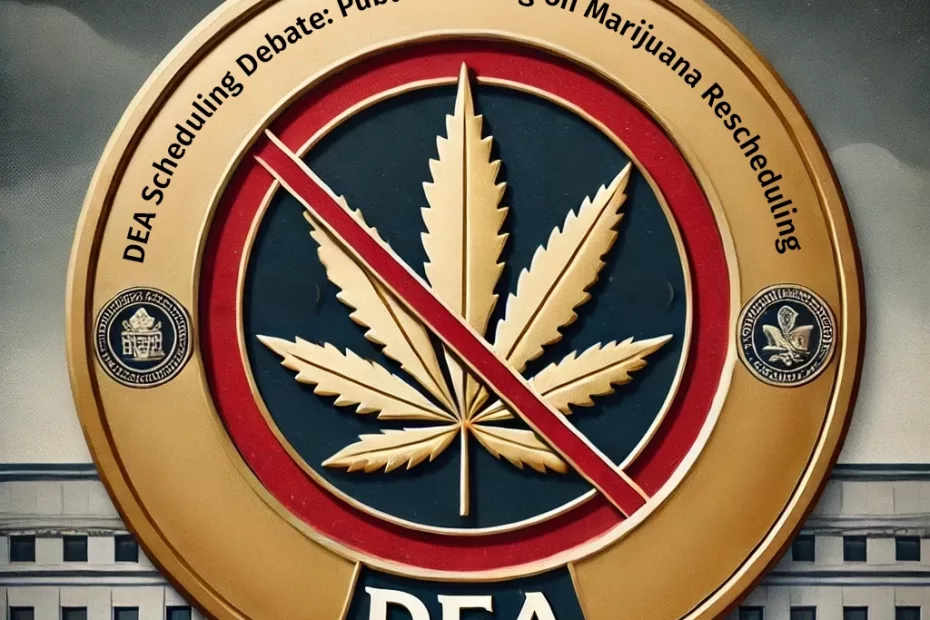The Drug Enforcement Administration (DEA) announced that it will hold a public hearing on its proposed expedited rulemaking to reclassify marijuana from Schedule I to Schedule III of the Controlled Substances Act (CSA). The hearing will be held on December 2, 2024, at 9 a.m. ET at 700 Army Navy Drive, Arlington, Virginia.
The purpose of the hearing would be to gather evidence and expert testimony as to whether marijuana should be down-scheduled to Schedule III of the CSA. As requested by HHS, it could be moved to Schedule III as a drug with an accepted medical use and a ‘lower potential for abuse’ than Schedule I or II drugs.
Background on Marijuana Rescheduling
On 21 May 2024, the DOJ published a Notice of Proposed Rulemaking (NPRM) that initiates the regulatory process for reclassifying marijuana to Schedule III, based on final reports from HHS that marijuana has an accepted medical use, less abuse potential than Schedule I drugs, and is not likely to be highly physically addictive.
The CSA arranges drugs into five schedules according to their medical use and potential for abuse. The CSA categorizes marijuana as a Schedule I drug, defined as ‘having no currently accepted medical use and a high potential for abuse’. Schedule III drugs, by comparison, are those deemed to have ‘a moderate to low potential for physical or psychological dependence’. If marijuana were rescheduled, that wouldn’t completely decriminalize it. The shift would just open it up for medical use at the federal level.
Public Input and Participation
More than 43,000 public comments were received in response to the proposed rescheduling mandated by the NPRM. And, as scheduled in the Federal Register, the DEA’s public hearing on 2 December will provide another forum for stakeholders to present evidence and expert opinion. Anyone wishing to personally attend the DEA’s hearing must submit a written notice of intent to speak by 30 September 2024.
Next Steps
Placement in Schedule III would therefore create a controlled environment, subject to regulatory controls, including those of Schedule III and additional regulations to be promulgated specifically for marijuana, applied in a manner consistent with US treaty obligations and with the Federal Food, Drug and Cosmetic Act (FDCA). Manufacture, distribution and possession would continue to carry criminal penalties under the CSA.
The public hearing is a crucial juncture in the battle over federal marijuana policy – perhaps the most important, because the DEA’s final decision on rescheduling will be heavily influenced by the evidence.
